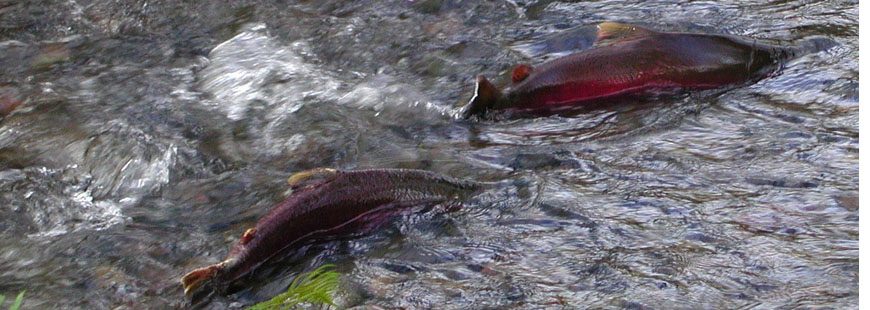Rep. Huffman is no stranger to the importance of salmon to the Pacific Northwest or the challenges these iconic fish face, as stated in his press release for the reintroduction of the Salmon FISH Act (H.R. 649):
“The ecological, cultural, and economic importance of salmon is hard to overstate; they support tens of thousands of jobs, sustain fishing communities, generate billions of dollars in economic activity, and provide a food source for millions of people. They also hold immense cultural significance for Tribes, like many in my district, who have fished for salmon since time immemorial,” said Rep. Huffman. “But this important species is facing numerous threats, and their populations are declining across the country. The Salmon FISH Act will identify critical centers of salmon abundance to ensure these areas receive the protection, support, and funding they need to continue to sustain the healthiest remaining salmon populations.”
In late January Huffman reintroduced legislation, the Salmon FISH Act, which would identify, restore, and protect key salmon rivers and watersheds in the United States. The legislation would also provide $40 million watershed protection and $50 million for a grant program.
According to Huffman’s website the legislation would:
- Identify the core centers of salmon abundance, productivity, and diversity as Salmon Conservation Areas and identifying areas of particularly pristine quality as Salmon Strongholds.
- Build upon existing analysis such as that used in Essential Fish Habitat.
- Ensure actions of the federal government do not undermine the abundance of these areas.
- Authorize funding for a grant program focused on restoration and conservation of Salmon Conservation Areas and Salmon Strongholds.
- Support current federal programs already focused on restoring and maintaining healthy watersheds.
The Network’s Policy Council co-chair Linda Behnken, executive director of the Alaska Longline Fishermen’s Association, voiced support for the legislation:
“It is so important for us to take special care of the remaining productive salmon habitat that we have left. If we don’t, we’ll stay on the path towards devastated fishing communities and Pacific ecosystems and, ultimately, salmon extinction,” said Behnken. “This intelligent and forward-looking bill would identify and apply special conservation status to the most important salmon habitat areas that remain and use existing public processes to ensure we keep them healthy.”
While Huffman’s legislation is species-specific, the fact is that protecting fish habitat delivers benefits far beyond the salmon. Habitat conservation creates healthy forests and watersheds leading to sustainable economic opportunities for local communities and the fishing industry nationwide.
The Network joins many others in thanking Rep. Huffman for reintroducing this legislation and looks forward to its progress through Congress.
Top Photo: Coho Salmon in Oregon’s Tillamook State Forest. Photo courtesy Wikipedia/Oregon Department of Forestry


